Global Innovation Summit 2024: Day Two - Harnessing Inclusiveness for Sustainable Growth
As the Global Innovation Summit (GIS) 2024 continues, Day Two emphasises a critical pillar of long-term sustainable innovation: inclusiveness.
The second day of the Global Innovation Summit (GIS) 2024 takes place at the iconic Whitla Hall, Queen's University Belfast.
Highlights of Day Two
As the Global Innovation Summit 2024 (GIS 2024) continues, Day Two emphasises a critical pillar of long-term sustainable innovation: inclusiveness.
In an era where technological advancements and economic growth are increasingly interconnected, the discussion on inclusivity isn’t just a moral imperative - it’s a strategic necessity.
The day opened with an energising address from Professor Sir Ian Greer, President and Vice-Chancellor of Queen's, who looked forward to another inspiring and thought-provoking day.
“Together, through the insights and expertise shared over the course of this conference, we are all taking important steps toward a more inclusive and sustainable future for generations to come. Let’s make the most of this opportunity to connect, learn, and spark ideas that will shape the world for the greater good.”
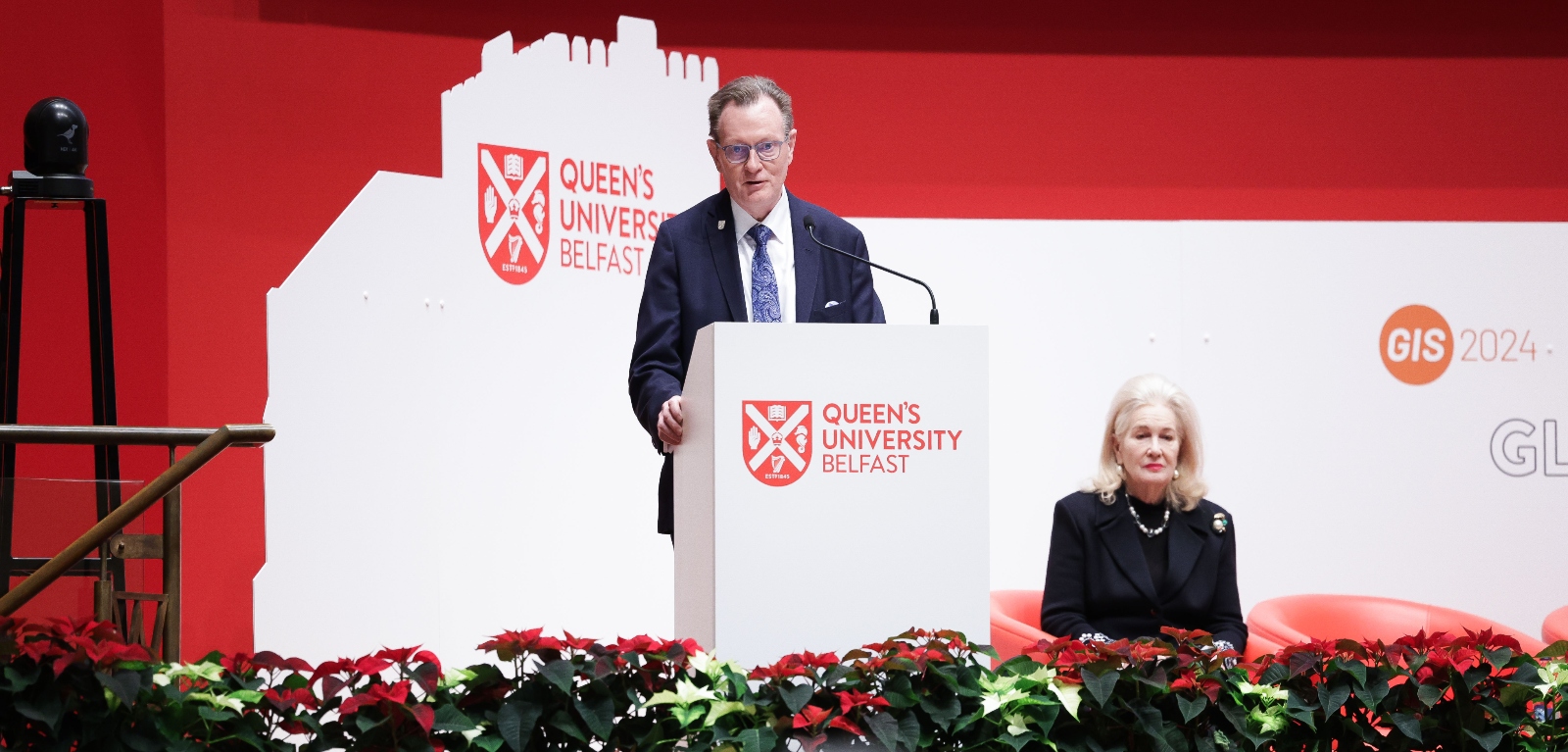 Professor Sir Ian Greer, President and Vice-Chancellor of Queen's welcomes delegates to this morning's GIS 2024 session.
Professor Sir Ian Greer, President and Vice-Chancellor of Queen's welcomes delegates to this morning's GIS 2024 session.
The Hon. Deborah Wince-Smith, President and CEO of the Council on Competitiveness, shared her insights taken from yesterday’s discussions: “I was deeply impacted by how Brian Cox articulated and correlated the exploration and quest for understanding the universe with the new knowledge of black hole formation that is required to advance the development of frontiers of quantum computing.
“He did a superb job of correlating exploration and knowledge for why we must sustain and grow our investment in research, which constitutes the very foundation for economic and social transformation.”
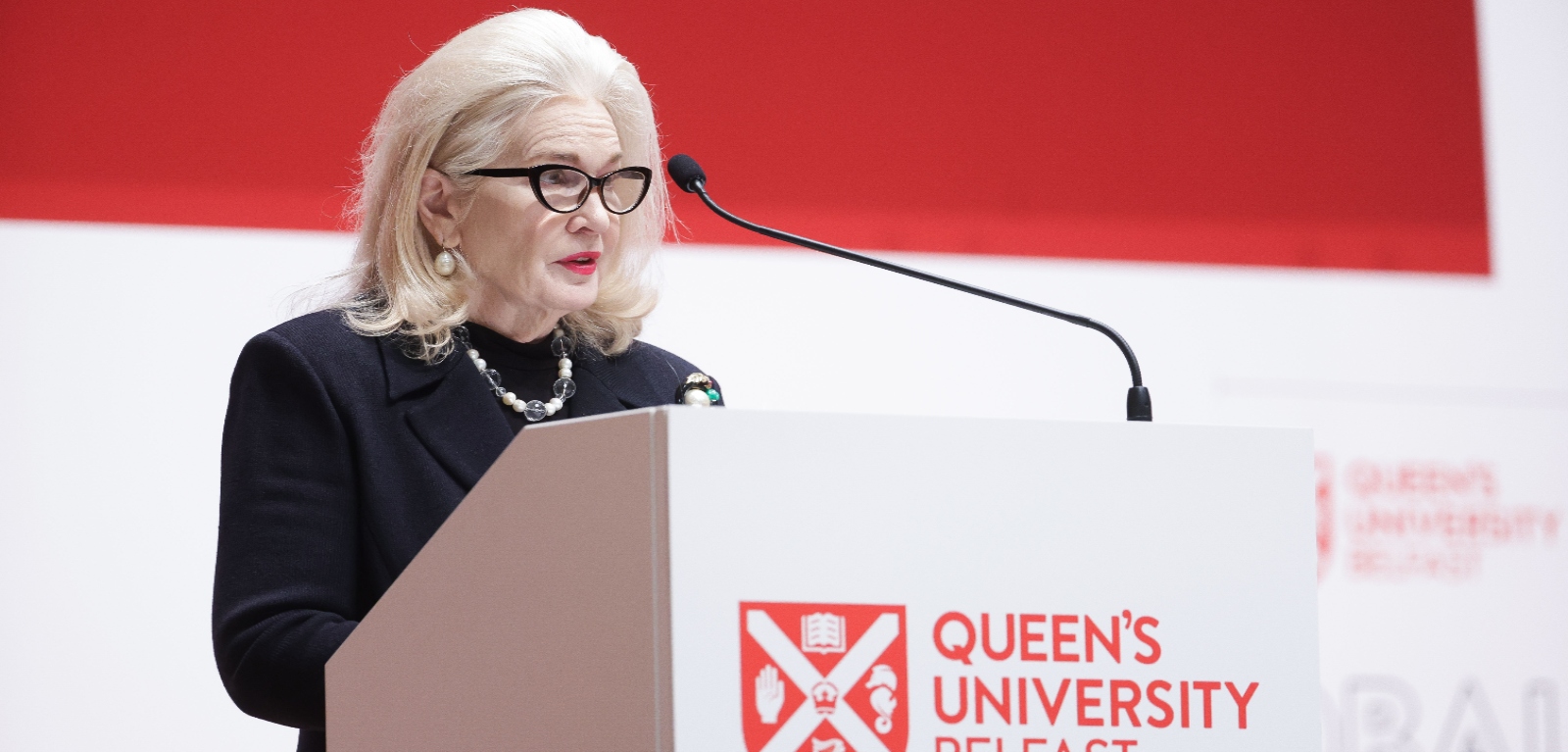 The Hon. Deborah Wince-Smith shares her insights taken from yesterday’s discussions.
The Hon. Deborah Wince-Smith shares her insights taken from yesterday’s discussions.
Andrew Haldane CBE, Chief Executive, Royal Society of Arts and former Chief Economist, Bank of England, followed by highlighting the importance of how social inclusion and diversity is the enabler of mass flourishing.
Drawing on a Hemingway quote, he emphasised the importance of cohesion, arguing that diversity - while a powerful source of innovation - requires collective action to avoid fragmentation and support true, inclusive progress.
Do you agree that #YouthClubs, #Football clubs, #GreenSpaces, #Museums and #Libraries are really important for communities to flourish?
— Queen's University Belfast (@QUBelfast) November 13, 2024
"I bang on all the time about physical infrastructure and digital infrastructure, but far too little talk about the #SocialInfrastructure that…
He stated that Belfast is the perfect place to have these conversations, recognising not just the social divide that the city has seen, but also the people that stepped up to close them.
He called upon GIS delegates, academics, professionals, and policymakers, "to focus on and invest in not just the social, but the sociable, to bring together cultures, ethnicities, and backgrounds in cohesive communal spaces across different fields – creating a ‘social capitalism’ – one that puts the human front and centre."
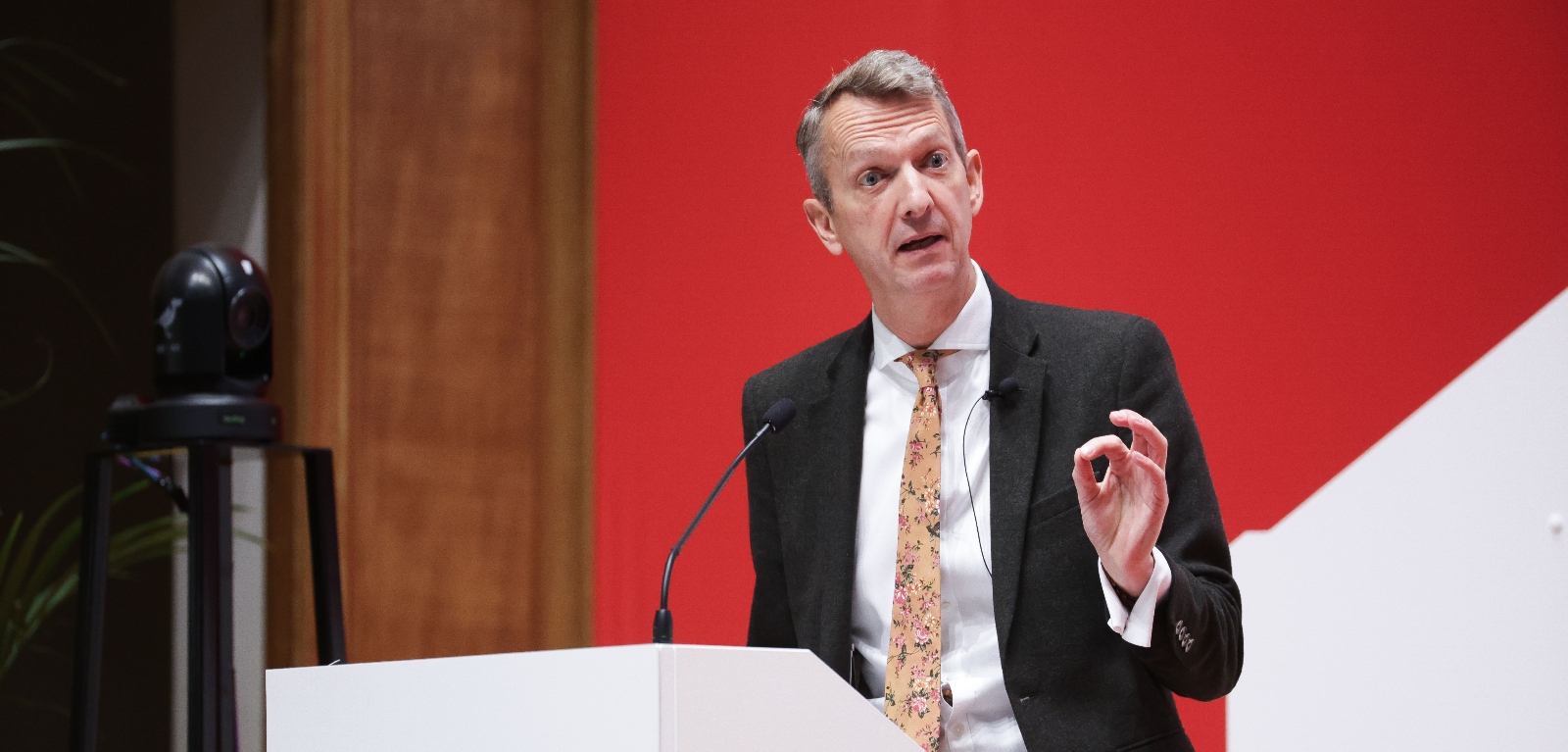 Andrew Haldane OBE delivers Day Two's opening session on social cohesion and connectiveness.
Andrew Haldane OBE delivers Day Two's opening session on social cohesion and connectiveness.
Our second speaker, Iain Percy OBE, Founder and CEO, Artemis Technologies, set sail with a vision of a cleaner maritime future, showcasing Artemis Technologies’ zero-emissions eFoiler, emphasising its positive economic and environmental impact.
He stressed the need for policy shifts to support such decarbonisation efforts globally and praised Belfast’s role as a supportive hub for pioneering technologies.
This is why #NorthernIreland is such a special place. It's the people that call it home.
— Queen's University Belfast (@QUBelfast) November 13, 2024
Do you agree?#Belfast #GISBelfast2024 @ArtemisTechLtd @IainPercy pic.twitter.com/293l3W9T4v
Through the work Artemis is doing as part of the Belfast Maritime Consortium, he also commended the city’s unique sense of confidence, community-driven innovation, and its historic connection to the maritime industry.
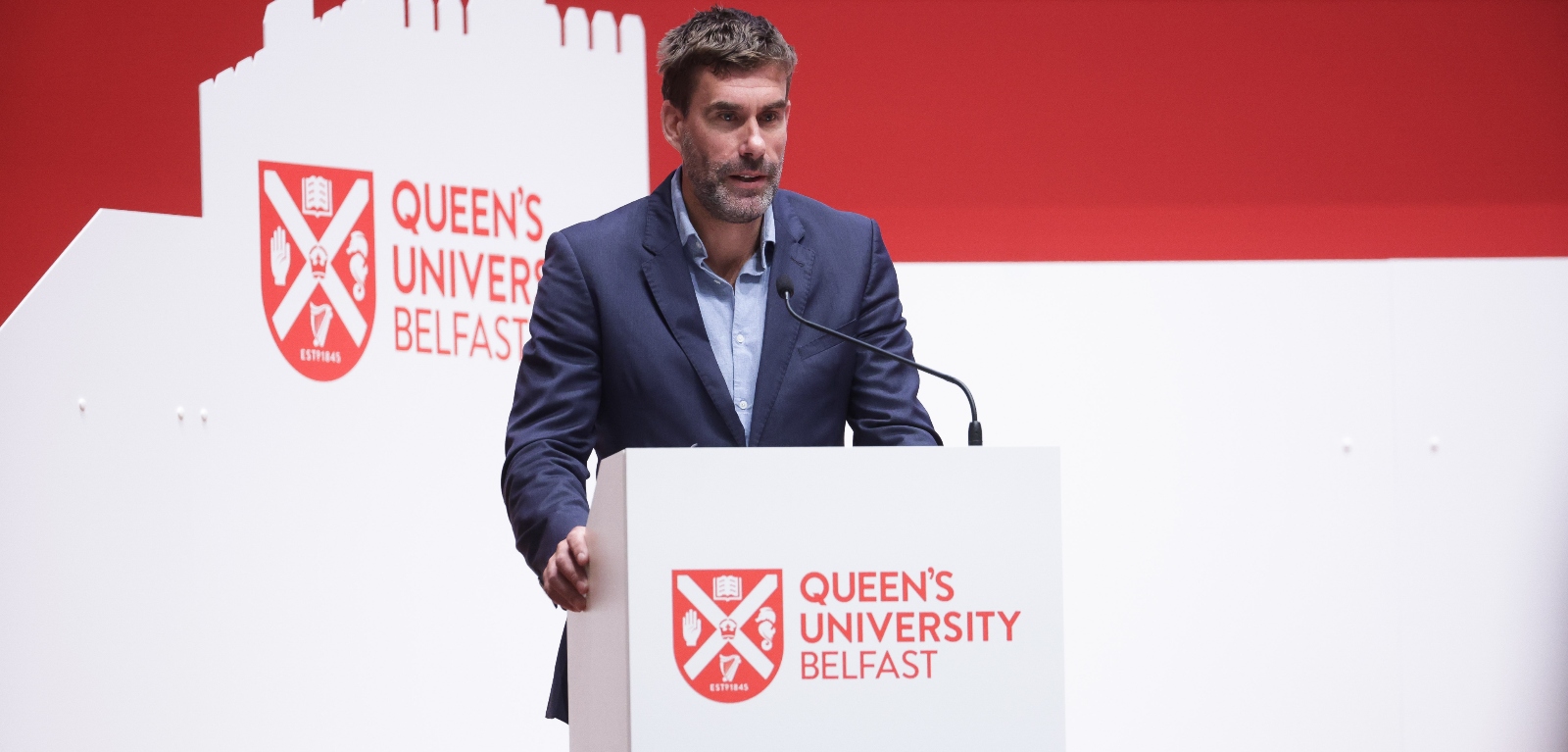 Iain Percy OBE shares his vision to decarbonise the maritime industry.
Iain Percy OBE shares his vision to decarbonise the maritime industry.
The morning’s panel sessions explored how bringing everyone into the innovation economy, and prioritising social equity and inclusiveness is vital to sustaining growth and fostering long-term economic development across all sectors and communities.
One of the key takeaways was delivered by John Healy OBE, Chair to the Board, Invest NI, who noted that building the ecosystem of universities like Queen’s, alongside the wider business community, is crucial to support further growth in innovation and entrepreneurship.
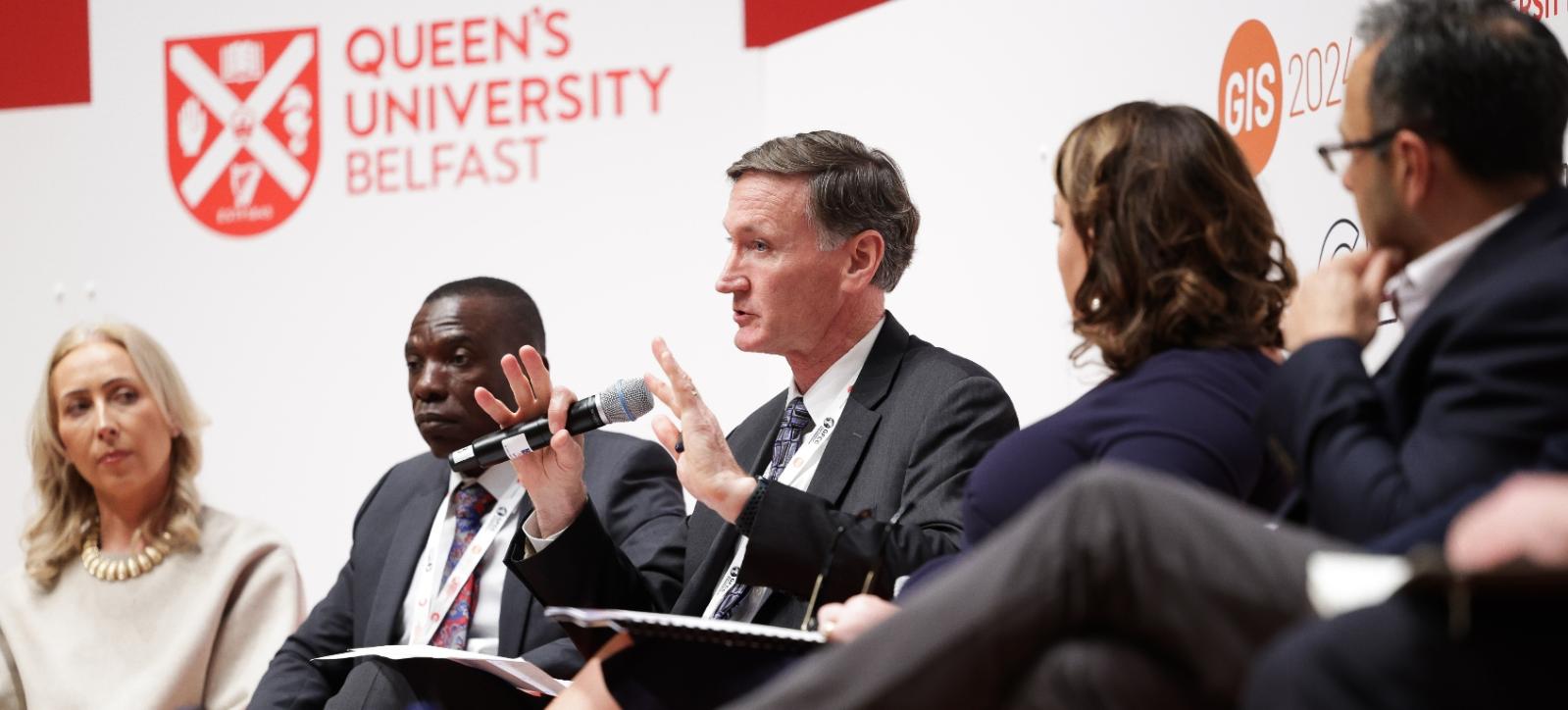 Our first panel conversation of the day: Bringing Everyone into the Innovation Economy.
Our first panel conversation of the day: Bringing Everyone into the Innovation Economy.
Dr Ghadah Al-Dabbagh of Saudi Arabia's Al-Dabbagh Group kicked things off in the second panel with a powerful reminder: around 70-90% of digital transformations fail, often due to inadequate change management.
She emphasised the importance of frameworks like the MIT digital maturity model to steer digital initiatives away from short-lived trends and toward meaningful growth.
Local insights came from Dr David Jordan, an Economics Lecturer at Queen’s University Belfast, who highlighted the importance of region-specific infrastructure and skill-building.
His reminder that productivity needs the right tech, at the right place and time resonated across the room.
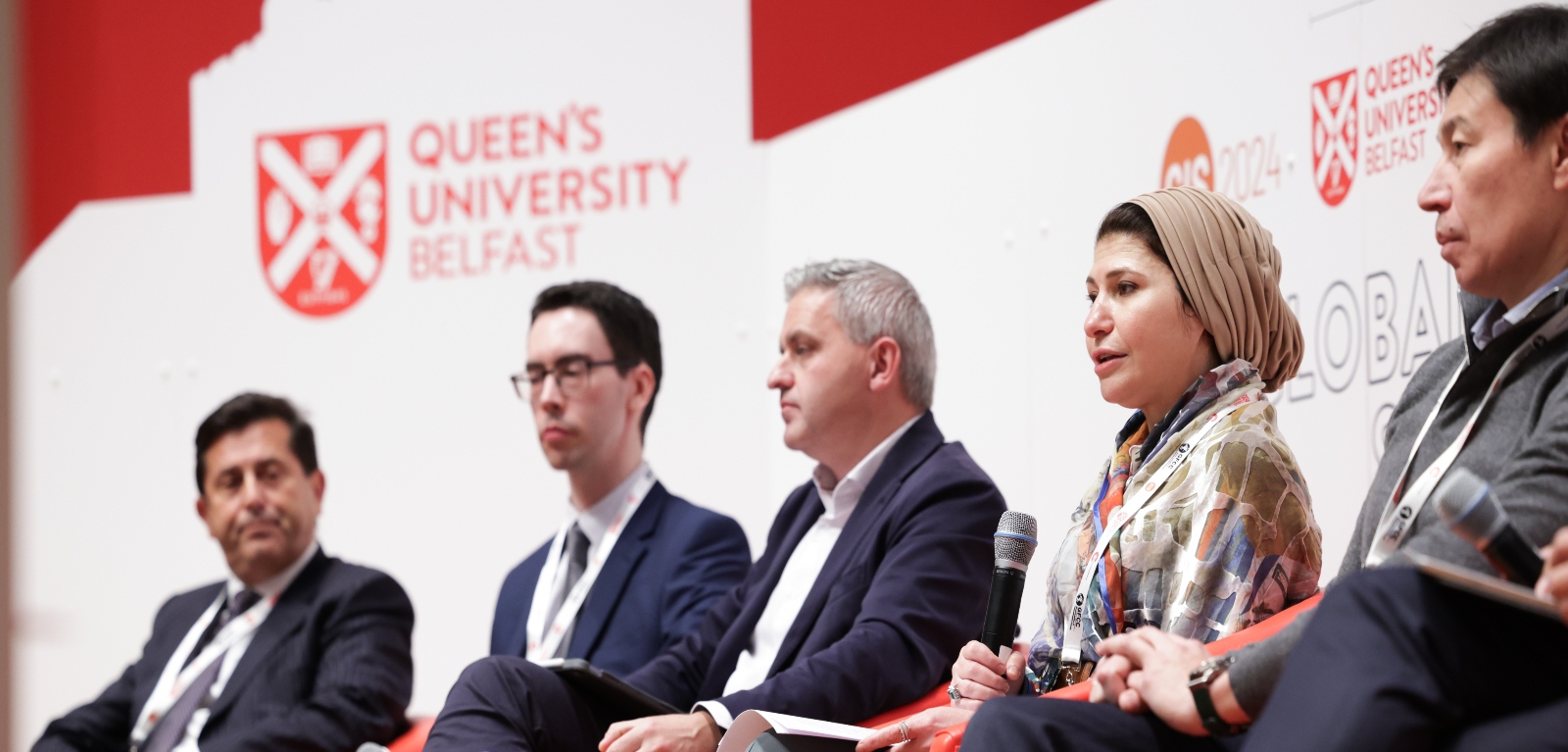 Our second panel conversation: Expanding Productivity Frontiers in the Digital Age.
Our second panel conversation: Expanding Productivity Frontiers in the Digital Age.
Our final speaker before lunch, Brian McCaul, Director of QUBIS at Queen's University discussed Queen's aim to become the most entrepreneurial university in the UK.
An ambitious aim, but he has the data to back it up: Queen's are currently ranked 2nd in the UK for entrepreneurial impact and 50% of deep tech start ups in Northern Ireland originate at Queen's.
He emphasised the crucial role of student entrepreneurship and how important it is for economic growth, student experience and cultural change in Northern Ireland.
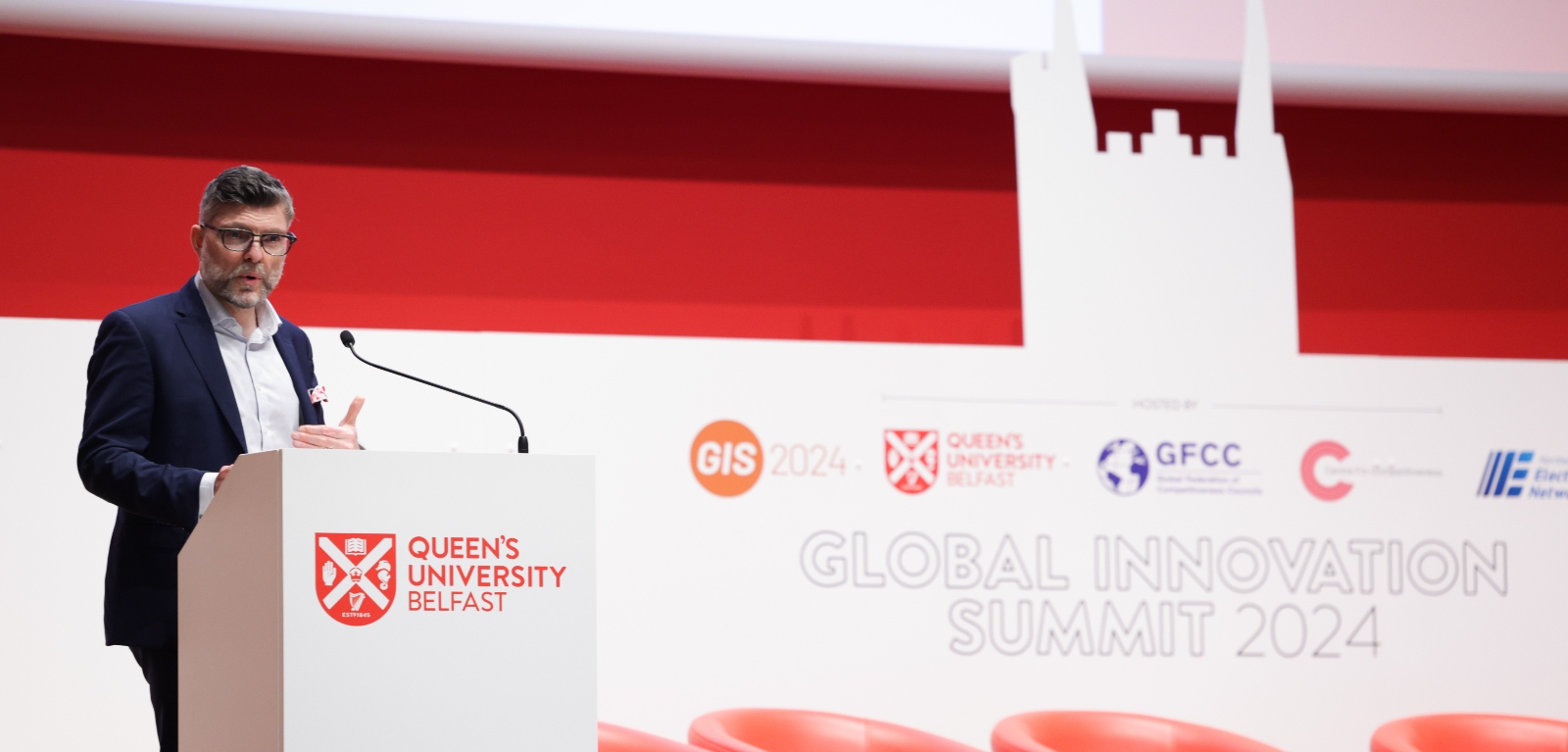
Brian McCaul, Director of QUBIS at Queen's University Belfast emphasises the crucial role of student entrepreneurship.
Throughout the day, we heard from our InQUBate students and graduates who are at the forefront of innovation, working to develop ideas and create solutions to the challenges faced across the globe.
What kind of business would you love to start?#GISBelfast2024 #Belfast #NorthernIreland pic.twitter.com/DbjrB8b5ZS
— Queen's University Belfast (@QUBelfast) November 13, 2024
Rachel Coulter, Queen's Graduate and Founder and CEO at Actionify, praised Queen's for providing the vital skills needed to be the change makers the world needs.
"Queen's has been phenomenal for me. I'm a recent graduate and they have been supporting us all along the way. I think it's been really incredible being able to say I am supported by Queen’s, it's such a prestigious university, really globally recognised. And that has been really influential in just getting into the right rooms with the right people."
.jpg) Rachel Coulter, Queen's Graduate and Founder and CEO at Actionify.
Rachel Coulter, Queen's Graduate and Founder and CEO at Actionify.
In our afternoon panel, Enabling Place-Making Innovation, we heard from Professor Sir Ian Greer, President and Vice-Chancellor of Queen's who remarked "the cyber security in Northern Ireland started with a research project spinning out from Queen's."
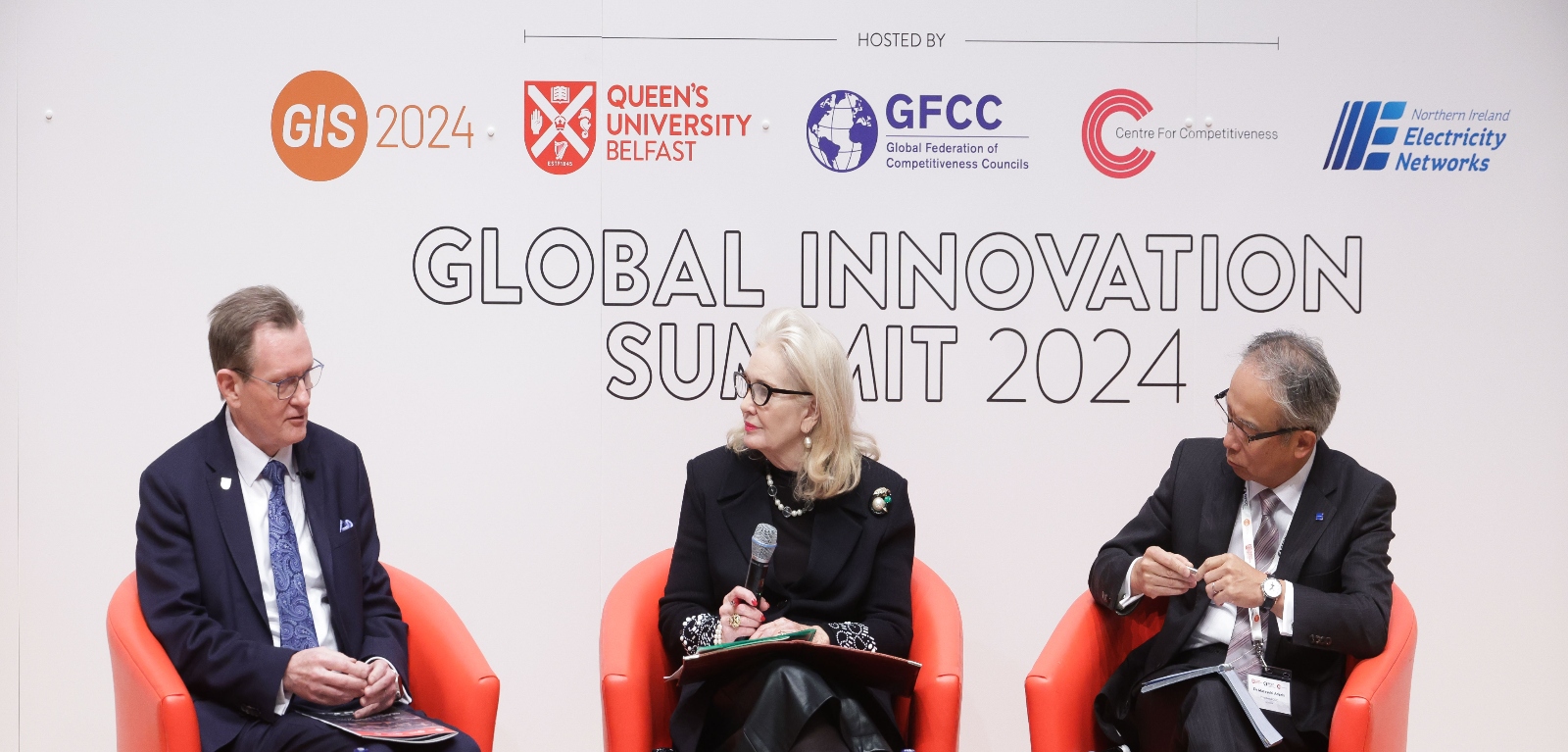
Professor Sir Ian Greer, President and Vice-Chancellor of Queen's, the Hon. Deborah Wince-Smith, President and CEO of the Council on Competitiveness and Dr Masayuki Adachi, President & COO, Horiba, Japan discuss enabling place-making innovation.
Did you know this? Another reason why our incredible staff and students are always leading the way.#GISBelfast2024 #CyberSecurity #AgriFood #DataAnalytics #Health @QUBVChancellor pic.twitter.com/0Oi6mUWgud
— Queen's University Belfast (@QUBelfast) November 13, 2024
We had a stimulating session with top Datathon teams as they shared their journey, challenges, and impressive outcomes in this solution-oriented analytics competition.
Tackling real-world data, teams proposed innovations to address urgent issues in Northern Ireland like child poverty, crime, and healthcare strains.
Groundbreaking solutions included mobile clinics to reduce healthcare costs and dynamic, socially focused crime prevention strategies aimed at boosting community stability and social mobility. All teams showcased an impressive blend of analytical skill and community impact!
The winning team, Team Four, with their idea of ‘Enhancing Healthcare Access in Northern Ireland through Mobile Health Solutions’, will travel to the United States in March 2025 to represent Queen’s and showcase their expertise on the global stage.
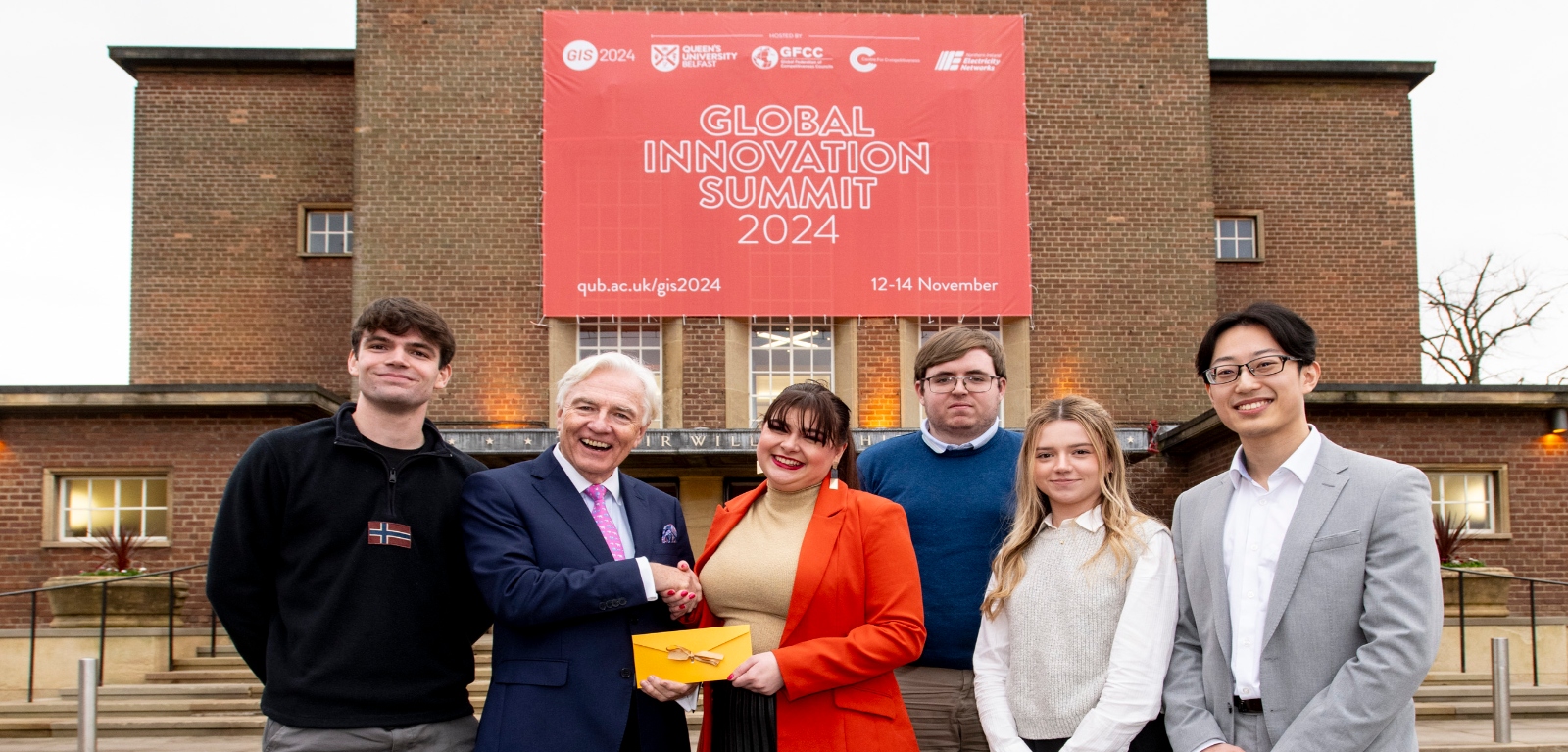
Our Datathon winning Team.
Mark Lawler, Professor of Digital Health at Queen’s University Belfast presented a new research report, published in Lancet Oncology.
The report data is stark. Five year survival rates in lung and stomach cancer in the UK languish at 28th out of 33 comparable countries. Targets for commencing treatment after a cancer diagnosis have not been achieved since 2015.
Those living beyond cancer should not have to pay twice.
— Queen's University Belfast (@QUBelfast) November 13, 2024
Retweet if you agree.#GISBelfast2024 #Cancer #CancerResearch pic.twitter.com/Cl7pwDKw4T
But Professor Lawler also illuminated a way forward. Updating equipment and enhancing workforce to similar high-income country levels could prevent 30,700 deaths from 11 common cancers by 2030, whilst also yielding a return of £17.30 per £1 invested, an economic benefit of £24.4 billion.
According to Professor Lawler: “Research is not a luxury – it’s necessary for 21st-century cancer care.”
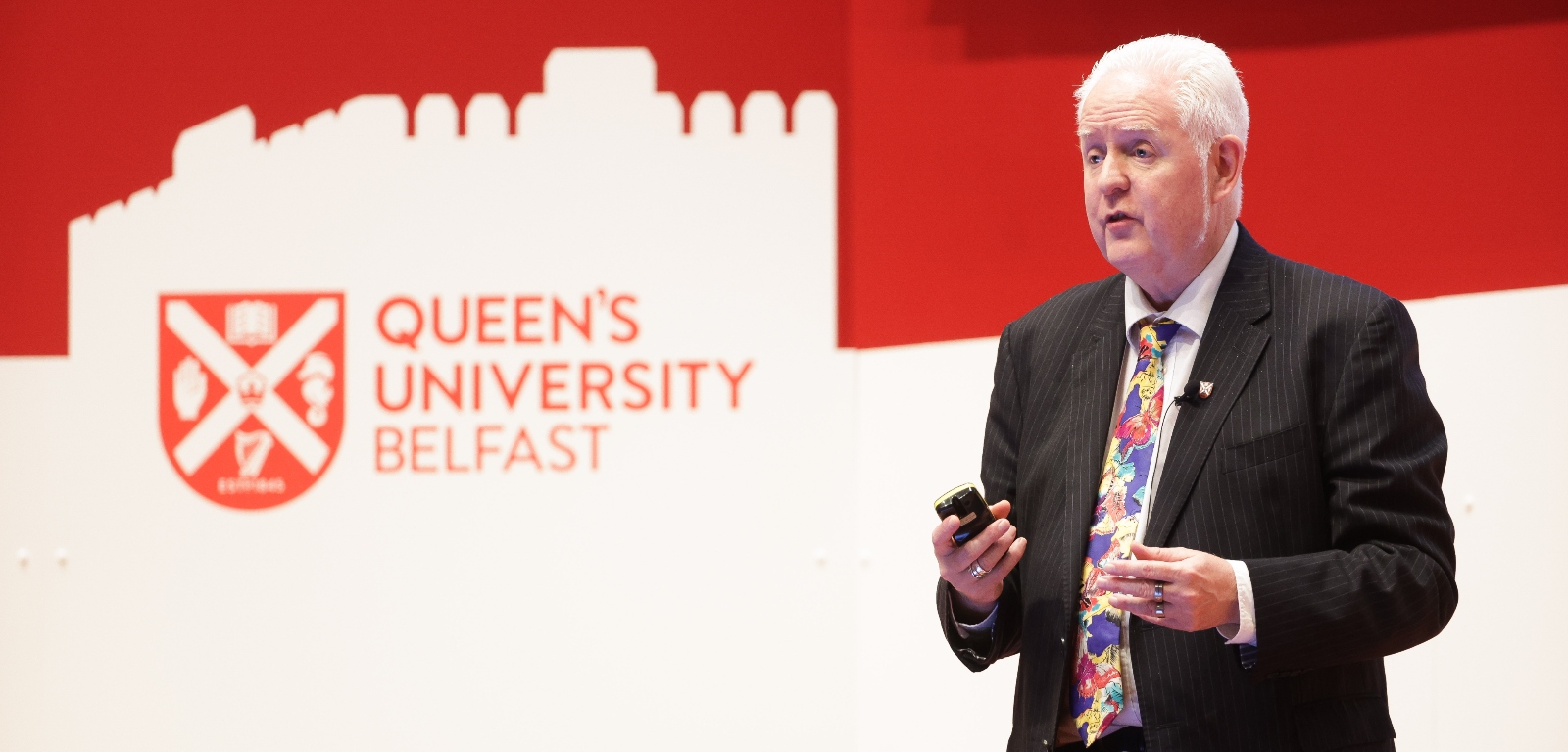
Professor Mark Lawler, Professor of Digital Health at Queen’s University.
The following conversation panel chaired by Professor Lawler challenged the current status quo, arguing that health is both an investment as well as a cost, and articulated a data-informed vision where a sustainable health and well-being agenda can both contribute to improved patient outcomes and better quality-of-life.
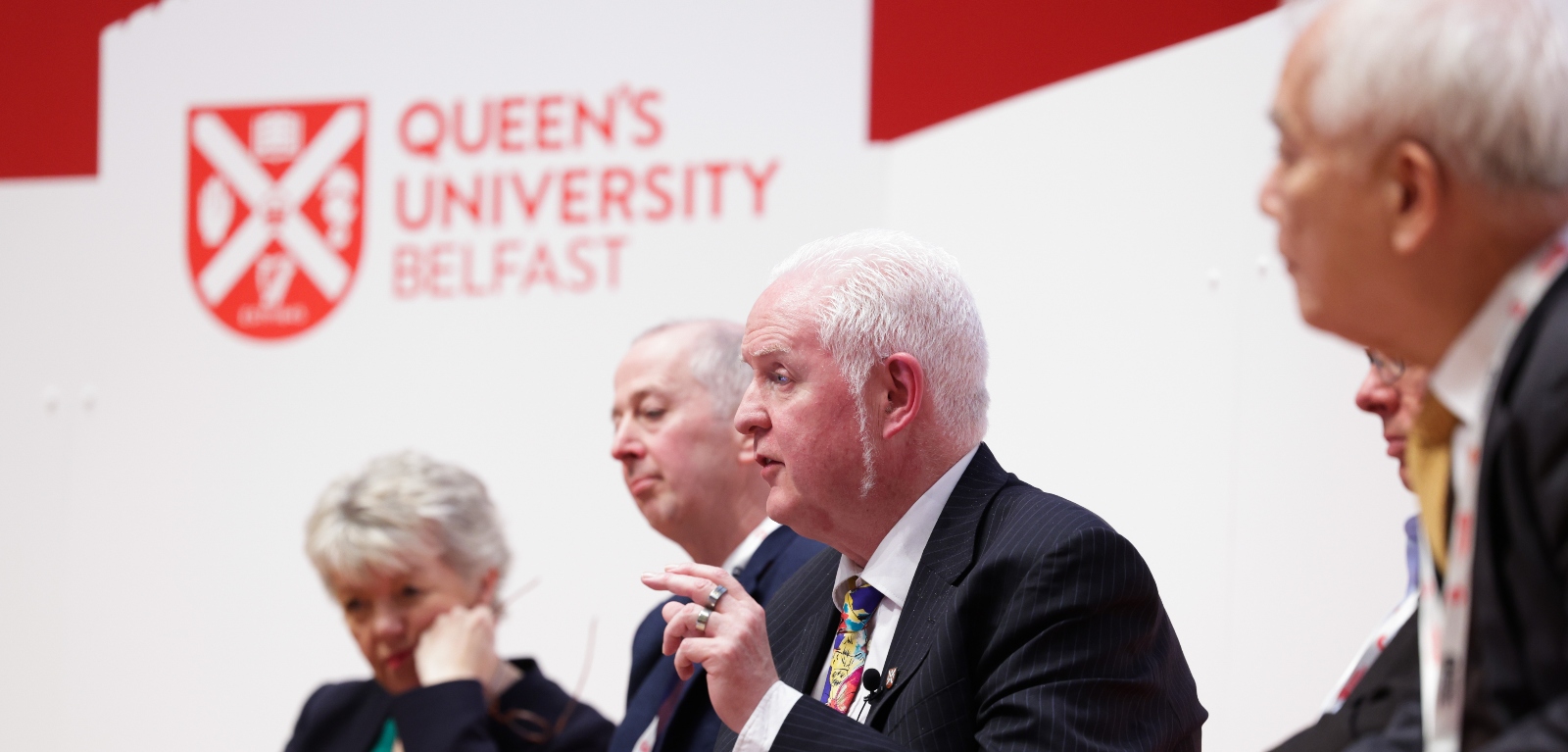 Our third panel conversation: Harnessing the Economic Dividend of Health.
Our third panel conversation: Harnessing the Economic Dividend of Health.
The workshops on Day Two of the Summit 2024 explored themes around inclusivity, sustainability, and advancing productivity in the digital age.
Key highlights saw discussions on preparing the workforce for the digital age, transforming regional economies through innovation, as well as sustainable manufacturing.
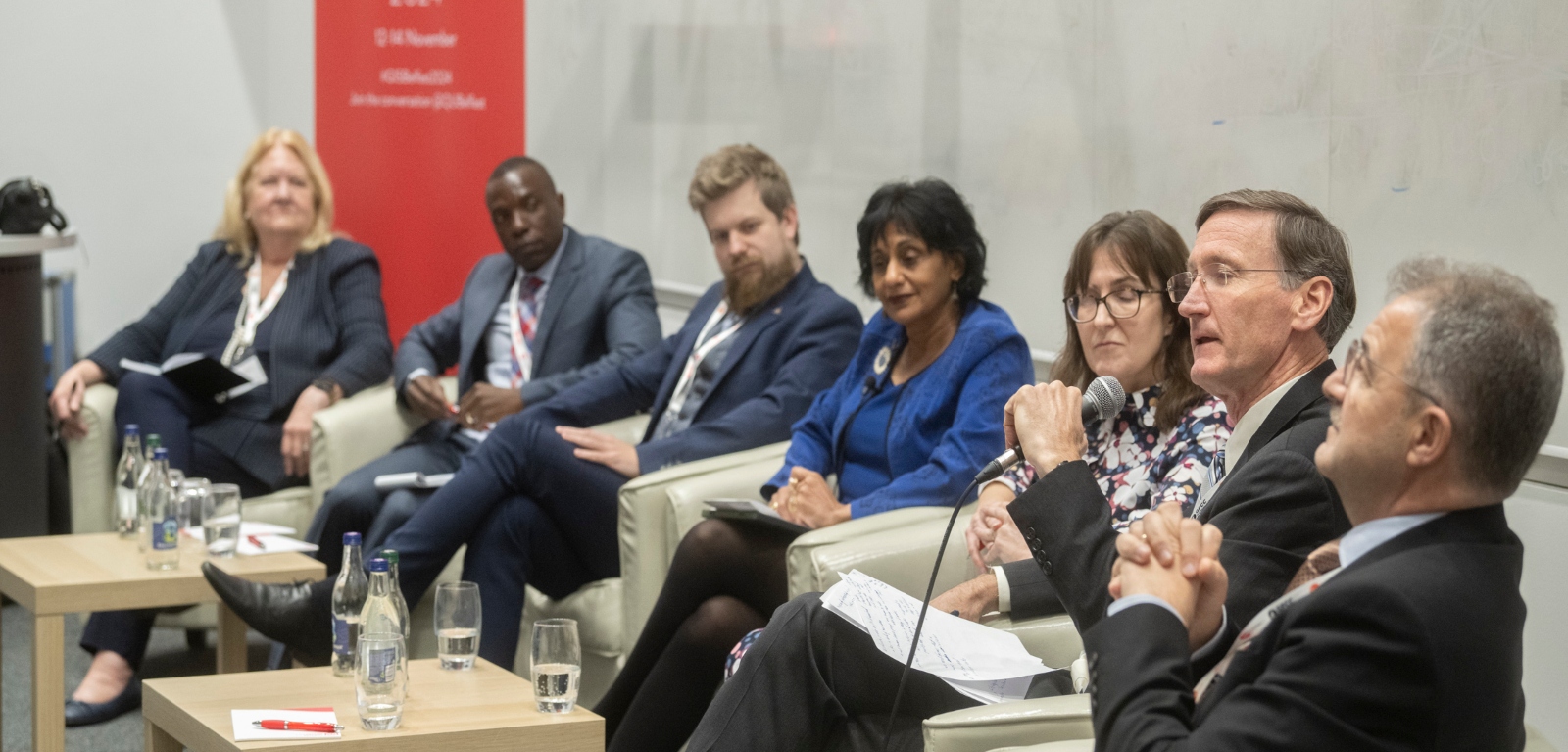 One of our workshop sessions discussing inclusivity, sustainability, and advancing productivity in the digital age.
One of our workshop sessions discussing inclusivity, sustainability, and advancing productivity in the digital age.
And that’s a wrap for day two, folks!
What an amazing second day to GIS 2024! A day filled with invaluable insights, stimulating discussions, and fantastic networking opportunities.
Congratulations to the InQUBate students and graduates students who we heard from earlier in the day and who received their awards at the evening's Gala Dinner. The top prize went to Emma Stephenson and her business 'MPower', and the two runners-up were Savannah Dodd for The Photography Ethics Centre, and Lauren McKeown for KitchenSync.
Of course, the Summit wouldn't be possible without the support from GIS 2024 partners including Global Federation of Competitiveness Councils, Centre for Competitiveness, Women in Business and Young Enterprise.
Queen's would like to say a massive thank you to this year's GIS sponsors, in particular Northern Ireland Electricity Networks and Accenture as well as partners Kainos, Historic Royal Palaces, Invest NI, Alteryx, Deep River Rock, Translink, Young Enterprise and Women in Business.
With more exciting sessions and inspiring speakers planned for tomorrow, you won't want to miss it!
For full coverage of the events and to join the conversation follow @QUBelfast on X and tune in to the live stream here.
Media
For media enquiries please contact comms.office@qub.ac.uk